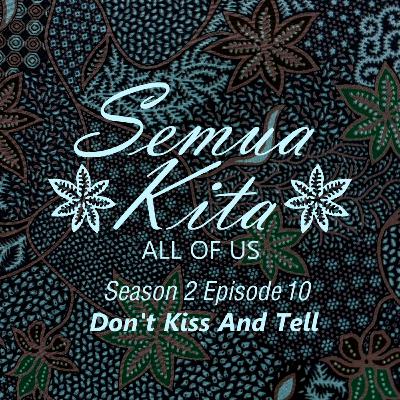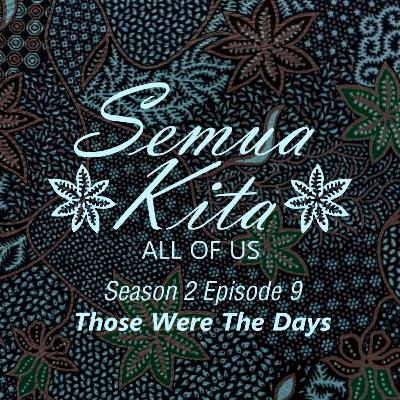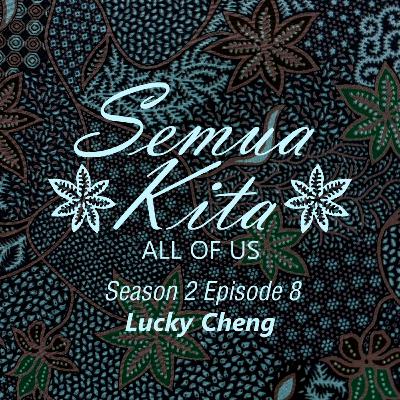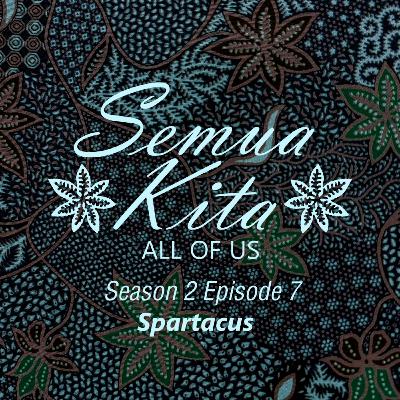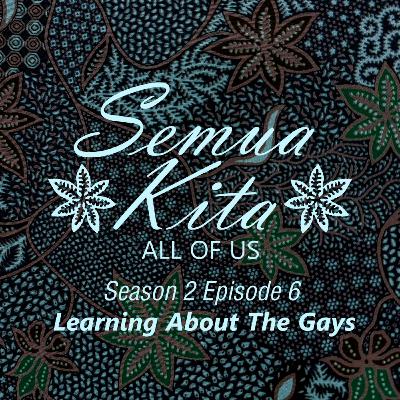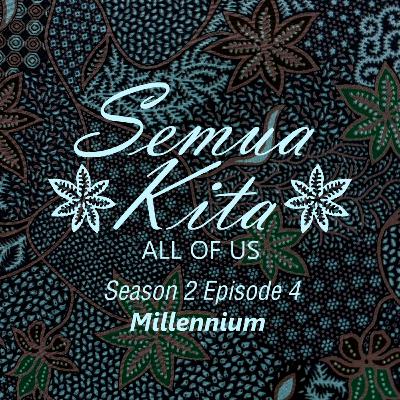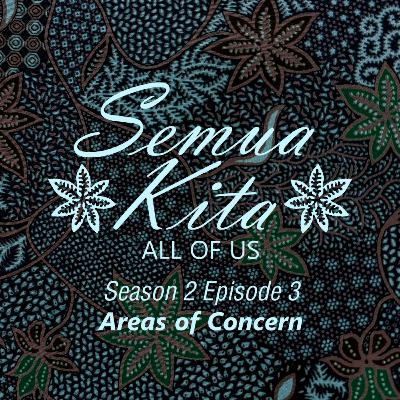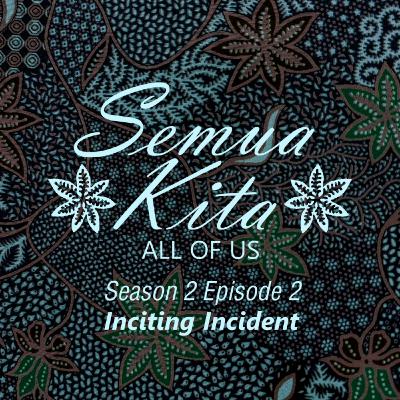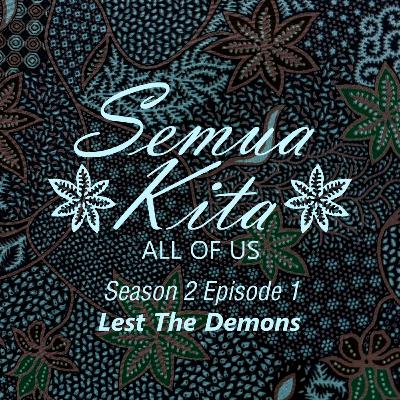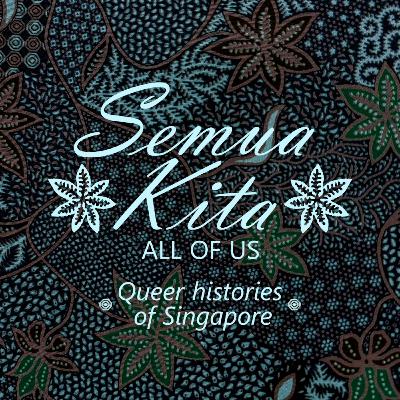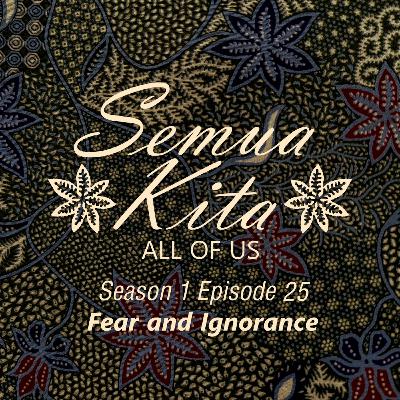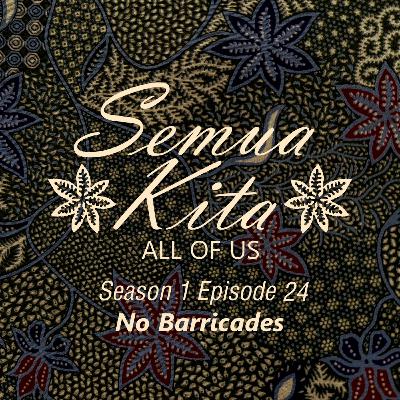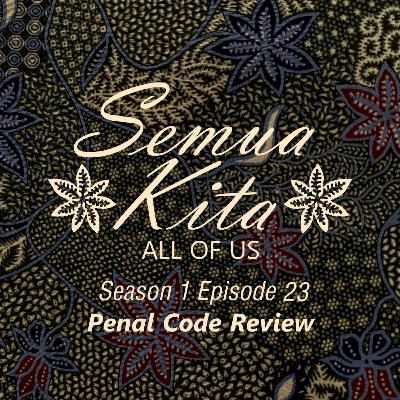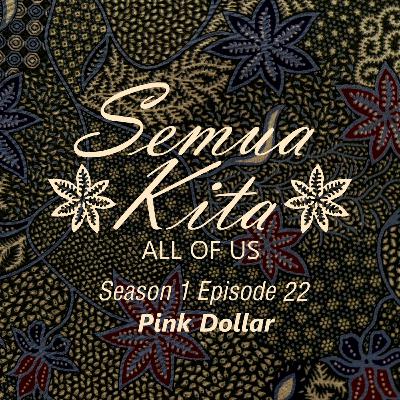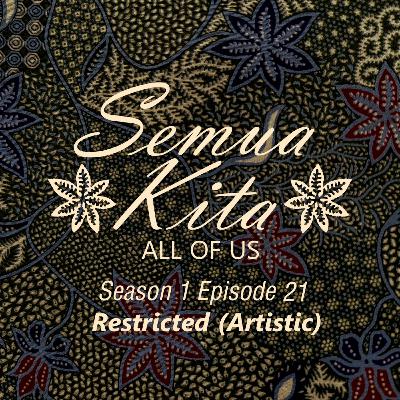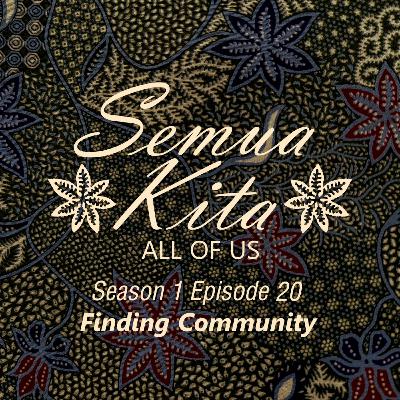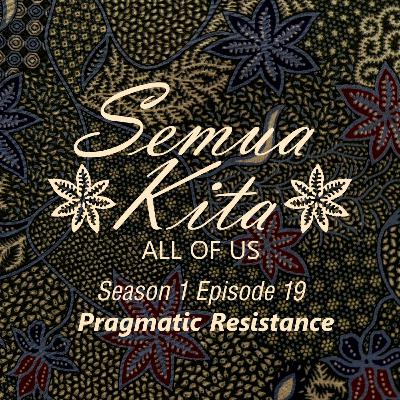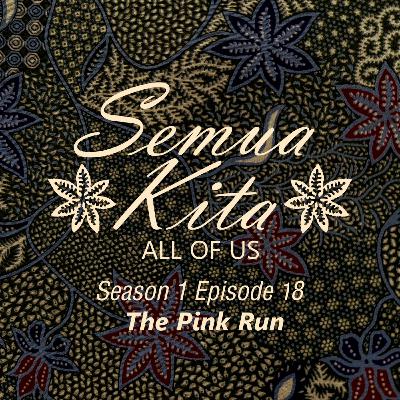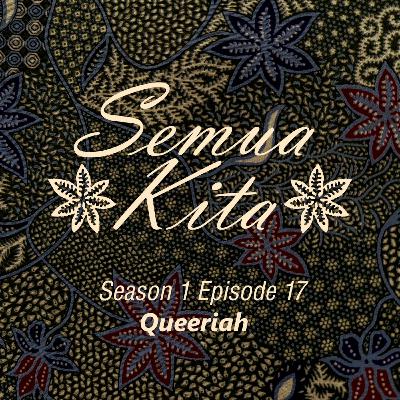Discover Semua Kita - all of us
Semua Kita - all of us

Semua Kita - all of us
Author: Semua Kita
Subscribed: 0Played: 0Subscribe
Share
© Semua Kita
Description
Semua Kita - "all of us" - is a podcast featuring oral histories of the LGBTQ community in Singapore, from the 1980s until decriminalization in 2022. If you're interested in stories of queer activism in the Lion City, then you are in the right place. Learn about the time before the repeal of Section 377A, of the social groups that existed before Pink Dot, and of the in-person and on-line spaces which led to the formation of a Singaporean queer community. Listen to what challenges they faced, and how they overcame them, in the voices of the people who were there.
37 Episodes
Reverse
In this episode of Semua Kita, Selena tells us more about her process of transition, what finally made her decide to go for top surgery, and the career path she decided to follow after that. In particular she talks about running her own business in the 2000s and what it took to attract clients.Other subscription, listening and following options here: https://bit.ly/m/semuakita #queer #LGBTQ #oralhistory #singapore
In the next few episodes of Semua Kita we hear from Selena, a transwoman and former sex worker, about her experience of being queer in Singapore. She tells us about how shenavigated being different in a place with dominant gender norms, what options for work and life she felt were open to her and whether she regrets the path she followed.In this episode she tells us about some of the challenges she faced as a gender non-conforming person who still felt obliged to live up to familial and societal expectations, particularly in school and in national service. Other subscription, listening and following options here: https://bit.ly/m/semuakita #queer #LGBTQ #oralhistory #singapore
In the last of our series of episodes featuring Max Lim, we hear more about the closure of his sauna, the complete change he made to his life when that happened and how he found a new purpose after that. He shares some of the memories of his brief stint at a drag cabaret in New York and how he has found companionship in his later years.Other subscription, listening and following options here: https://bit.ly/m/semuakita #queer #LGBTQ #oralhistory #singapore
In this episode of Semua Kita, Max talks to us about the challenges he faced with tempremental venues and greedy landlords. We hear more about how he moved into venues of his own, including his sauna Spartacus and its successors, Stroke and the legendary Raw located on Ann Siang Hill which also hosted regular cabaret shows.Other subscription, listening and following options here: https://bit.ly/m/semuakita #queer #LGBTQ #oralhistory #singapore
In the next series of episodes we speak to Max Lim, serial entrepreneur, Sunday night gay club promoter and, amongst other venues, the founder of Singapore's first gay sauna, Spartacus in South Bridge Road.Here, however, we hear about what it was like growing up in a kampung in Hougang then discovering his same sex attraction. How did he meet other like-minded men when he didn't know what the word "gay" even meant? We learn how this led to the setting up of his first nightclub.Other subscription, listening and following options here: https://bit.ly/m/semuakita #queer #LGBTQ #oralhistory #singapore
In the last of this series of episodes featuring Russell Heng, he talks to us about the tensions which arose between his duties in the workplace and his role as a gay activist. What happens when these objectives are framed as clashing? How does one make the choice between integrity and survival?As someone who has been an active participant in civil society, Russell's interests are not limited to LGBTQ people but to other marginalized groups including transient workers. He talks about how it is possible to channel indignation into a force for good.Other subscription, listening and following options here: https://bit.ly/m/semuakita #queer #LGBTQ #oralhistory #singapore
It is the new millennium and as Russell describes it, it was a time of great change for the LGBTQ community in Singapore. Not only was the community visibly larger and better connected, there was increased interest from academia to document the changes which were taking place.This opening up of the public realm was reflected in the arts and even in the political sphere, creating a space for greater personal expression. Permission was finally given for "Lest The Demons Get To Me" to be staged.Other subscription, listening and following options here: https://bit.ly/m/semuakita #queer #LGBTQ #oralhistory #singapore
In this episode of Semua Kita we hear about the decision to register People Like Us as a society and the hurdles faced in the process. Registration was important in order to give the group validity and to keep it legal, but it was also a declaration of existence to the authorities and put the ten responsible people who were listed on the form in a vulnerable position. What concerns about an LGBTQ social group did the Registry of Societies have?Other subscription, listening and following options here: https://bit.ly/m/semuakita #queer #LGBTQ #oralhistory #singapore
In this episode Russell tells us how he navigated his working life as an out gay man. He reflects on how financial independence shielded him from many of the worst aspects of homophobia.Beyond his professional life, however, Russell was starting to meet other gay people. This served as the basis of a budding community and was important when the Rascals incident occurred. It facilitated an organized response to the actions of the police. But how did he meet other people in the first place?Other subscription, listening and following options here: https://bit.ly/m/semuakita #queer #LGBTQ #oralhistory #singapore
Russell Heng has lived many lives in Singapore but is probably most well known as one of the key members of People Like Us, and the playwright of the ground-breaking work "Lest The Demons Get To Me" a play which explored the clash of cultures in a modernizing and cosmopolitan city. In this episode we hear from Russell about his life as a Teochew boy growing up in the 60s and 70s, his experiences at school, and the realization that he was not like anyone else. Other subscription, listening and following options here: https://bit.ly/m/semuakita #lgbtq #queer #oralhistory #singapore
Welcome back to Semua Kita, a podcast about queer lives in Singapore from the 80s until the decriminalization of homosexuality in 2023.Season 2 features interviews with even more LGBTQ Singaporeans as we talk about our childhoods and growing up on the island.How did we find each other in the days before the internet and apps? How did we navigate our lives in a relatively conservative environment? Join us as we explore places in Singapore where queer people would live, work, meet, dance, connect and build a community. Hear about how hearts were broken and love was found from people who were there.These are their stories. These are our stories. These are stories of all of us.Other subscription, listening and following options here: https://bit.ly/m/semuakita#queer #LGBTQ #oralhistory #singapore
In this episode, the final one of this season of Semua Kita, Lip Sin tells us about the early Pink Dots. We also hear about the Bear Project, at the time one of the largest LGBTQ groups in Singapore. It reflected the new diversity in the queer community in which multiple different identities were encompassed by the LGBTQ umbrella. These groups were an essential contribution to the success of Pink Dot.
He also tells us about the early anxieties he had about the authorities as one of the organizers of the event, what it was like working with the police, having to deal with safety concerns in the wake of the Orlando shooting and how the messaging of Pink Dot was also tweaked with time.
Other subscription, listening and following options here: https://bit.ly/m/semuakita
#lgbtq #queer #oralhistory #singapore
As Lip Sin tells us, the retention of Section 377A after the penal code review in 2006 was a setback to the LGBTQ community in Singapore, but it also set in motion conversations about how to respond, and an exploration of what other means were available to the community to actively seek its repeal.
At the same time, Speakers' Corner in Hong Lim Park became available as a place for speeches and demonstrations, including a LGBTQ Pride-type event. Pink Dot emerged in this context. Lip Sin tells us about the influences and principles which literally shaped the idea of a pink dot.
Other subscription, listening and following options here: https://bit.ly/m/semuakita
#lgbtq #queer #oralhistory #singapore
In this episode of Semua Kita we discuss the penal code review of 2006 which led to the removal of Section 377 but the retention of Section 377A which specifically targeted the gay community. The rising tide of hatred this unleashed, channelled through the advent of social media, transformed the web from a place of safety to one of harm for many LGBTQ Singaporeans.
Yet, as Lip Sin tells us, this also galvanized the community in Singapore, leading to the submission of a Parliamentary petition and a debate which aimed to repeal this law the following year. Unfortunately, it was unsuccessful, but the conversation it precipitated was an important stepping stone for change.
Other subscription, listening and following options here: https://bit.ly/m/semuakita
#lgbtq #queer #oralhistory #singapore
In this episode of Semua Kita, Lip Sin talks to us about Fridae.com, the Nation Parties and their place in Singapore's queer history. He describes their impact on the LGBTQ community here, and how their banning led to the formation of IndigNation. The mid 2000s also saw a change in the political climate for these Singaporeans who were increasingly marginalized.
Other subscription, listening and following options here: https://bit.ly/m/semuakita
#lgbtq #queer #oralhistory #singapore
As an active member of most of Singapore's modern queer groups since the 90s, including being part of many of the groups and events we have heard mentioned in the course of these episodes, like ATLUS, Nation Party, Fridae.com, IndigNation, Pelangi Pride Centre, Oogachaga and more, Choo Lip Sin has had a front row seat in observing how the LGBTQ+ community has grown in the last three decades.
In this episode we step back in time to hear about how on-line connections like bulletin boards and internet relay chat in the early days of the internet brought the community of largely English-speaking gay and bi- men together in the mid 90s. We hear about groups like Men After Work (MAW), HongLimPark.com, SGBoy and Blowing Wind. This coincided with the more open governing style of the then Prime Minister, Goh Chok Tong which led to the blossoming of spaces for self-expression from karaoke bars to saunas, and the flowering of queer theatre in Singapore in what seemed like a short-lived golden age for the LGBTQ scene here.
He describes how that changed in the mid 2000s, and why Section 377A then became the focus for activism when it had not been that significant in the decade before.
Other subscription, listening and following options here: https://bit.ly/m/semuakita
#lgbtq #queer #oralhistory #singapore
In this episode of Semua Kita, we continue our conversation with Miak, this time to understand his personal journey of coming out. He tells us how he found a gay community which strengthened his affinity for LGBTQ activism, and how he was eventually drawn to Christianity which led to his current involvement with the Free Community Church, an LGBTQ-affirming church in Singapore.
Other subscription, listening and following options here: https://bit.ly/m/semuakita
#lgbtq #queer #oralhistory #singapore
One of the key events of IndigNation was the Pink Picnic, so named because LGBTQ people could gather in the Botanic Gardens on National Day. In this episode Miak tells us about what was, in many ways, a precursor to Pink Dot.
As has been mentioned, IndigNation was organized in response to the banning of Nation, a circuit party which was held on Sentosa. Miak talks about gay and lesbian advocacy in that period as a time of pragmatic resistance, but it was also a time at which the government itself was becoming more pragmatic.
As the community diversified and the interests of individual members of PLU diverged, many new groups and events sprang up which in turn led to the eventual closure of PLU. Miak explains how this happened.
Other subscription, listening and following options here: https://bit.ly/m/semuakita
#lgbtq #queer #oralhistory #singapore
Miak Siew is well known as the currrent executive pastor of the Free Community Church, but he has been involved with gay and lesbian advocacy in Singapore for over a quarter century. In that time he has been a member of groups we have already heard about, like People Like Us, and participated in many of the on-line spaces which have been mentioned, like SigNel, Sintercom and Blowing Wind. In this episode he gives us an overview of the gay liberation movement in Singapore from the late 90s.
Miak was particularly instrumental in putting together IndigNation and describes the kinds of events which were held over this early Pride festival, focusing on how it navigated the vagaries of Singapore's decency laws at the time. He tells us about the first Pink Run and the anxiety he went through as its organizer.
Other subscription, listening and following options here: https://bit.ly/m/semuakita
#lgbtq #queer #oralhistory #singapore
In this episode of Semua Kita we delve into Eileena's personal story, including the process of self-realisation, coming out and then finding a role as both counsellor and activist. First, however, she tells us about how she realised that she was a lesbian.
Eileena tells us how she got into counselling, specifically for the LGBTQ community in Singapore. She describes some of the situations her patients and their families encountered.
Eileena speaks about her role in People Like Us, what she learned about whether the queer community was ready for change and how disagreements in how women's interests were represented eventually led to her stepping down from the group.
Singapore sits at the crossroads of different cultures. How relevant are lessons learned elsewhere to local queer activists and, conversely, what can the authorities learn about how to respond to competing demands?
How important is it for the queer community in Singapore to know our own history?
Other subscription, listening and following options here: https://bit.ly/m/semuakita
#lgbtq #queer #oralhistory #singapore


